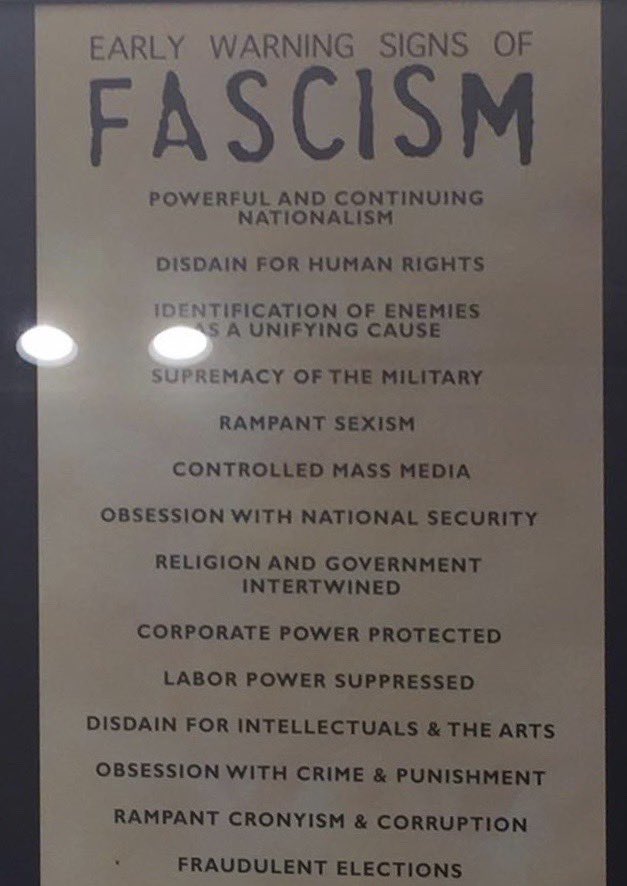This list is totally bollocks, sorry. Fascism is inherently aestheticist, it's simply false to say that fascism has a general disdain for intellectualism and the arts. Fascists tend to really dislike subversive art and really like traditionalist art, especially if it is even vaguely close to what they're preaching, see Nazis appropriating Wagner and Nietzsche, but it is even more obvious in Italy (which remains to this day the textbook example of fascism, Nazism is meaningfully distinct from it). Just look at futurism and its course. Fascists constantly peddle in intellectualism and mysticism. The intellectual founding fathers are almost all mysticists: Rene Guenon, Julius Evola, Coomaraswamy, Schuon.. It is very interesting to note that almost all the traditionalist, conservatist and later fascist thinkers were this way. Mysticism is also inherently aesthetic.
Some fascists drew from peoples as diverse as Bergson, Dostoyevski, Darwin, etc. It's not necessarily an intellectually poor movement or one devoid of theory. It's not necessarily an artistically poor movement either, just look at a brilliant author like Yukio Mishima who was probably Japan's most celebrated author (and model) for a long time irrespective of being a fascist past WW2. He was also, not unlike Evola & friends, pretty insane. Or Celine, who was equally insane and equally brilliant as an author.
A lot of the list simply reflects authoritarianism, which isn't even necessarily fascist. More than half of those points apply to, say, corporate libertarianism the same way they apply to any authoritarian system. Just ask yourself how many of these points apply to China as well, and if China is meaningfully fascist.
Also, I have no idea why religion and fascism are conflated on that chart. In fact so few fascist movements are religiously motivated (they only use it as a tool, if at all) that we specifically coined phrases like Islamofascism to make it clear that fascism is not inherently religious. Though some of its core ideas may stem from organized Religion:
Georges Valois, founder of the first non-Italian fascist party
Faisceau,
[75] claimed the roots of fascism stemmed from the late 18th century
Jacobin movement, seeing in its totalitarian nature a foreshadowing of the fascist state. Historian
George Mosse similarly analyzed fascism as an inheritor of the
mass ideology and
civil religion of the
French Revolution, as well as a result of the brutalization of societies in 1914–1918.
[76]
Historians such as
Irene Collins and
Howard C Payne see
Napoleon III, who ran a 'police state' and suppressed the media, as a forerunner of fascism.
[77] According to
David Thomson,
[78] the Italian
Risorgimento of 1871 led to the 'nemesis of fascism'.
William L Shirer[79] sees a continuity from the views of
Fichte and
Hegel, through
Bismarck, to Hitler;
Robert Gerwarth speaks of a 'direct line' from Bismarck to Hitler.
[80] Julian Dierkes sees fascism as a 'particularly violent form of
imperialism'.
[81]
The fascism proper view on religion was mostly this however: Mussolini wrote a short essay called "Philosophy of Strength" based on his Nietzschean influence, in which Mussolini openly spoke fondly of the ramifications of an impending war in Europe in challenging both religion and
nihilism: "[A] new kind of free spirit will come, strengthened by the war, ... a spirit equipped with a kind of sublime perversity, ... a new free spirit will triumph over God and over Nothing".
[106]


